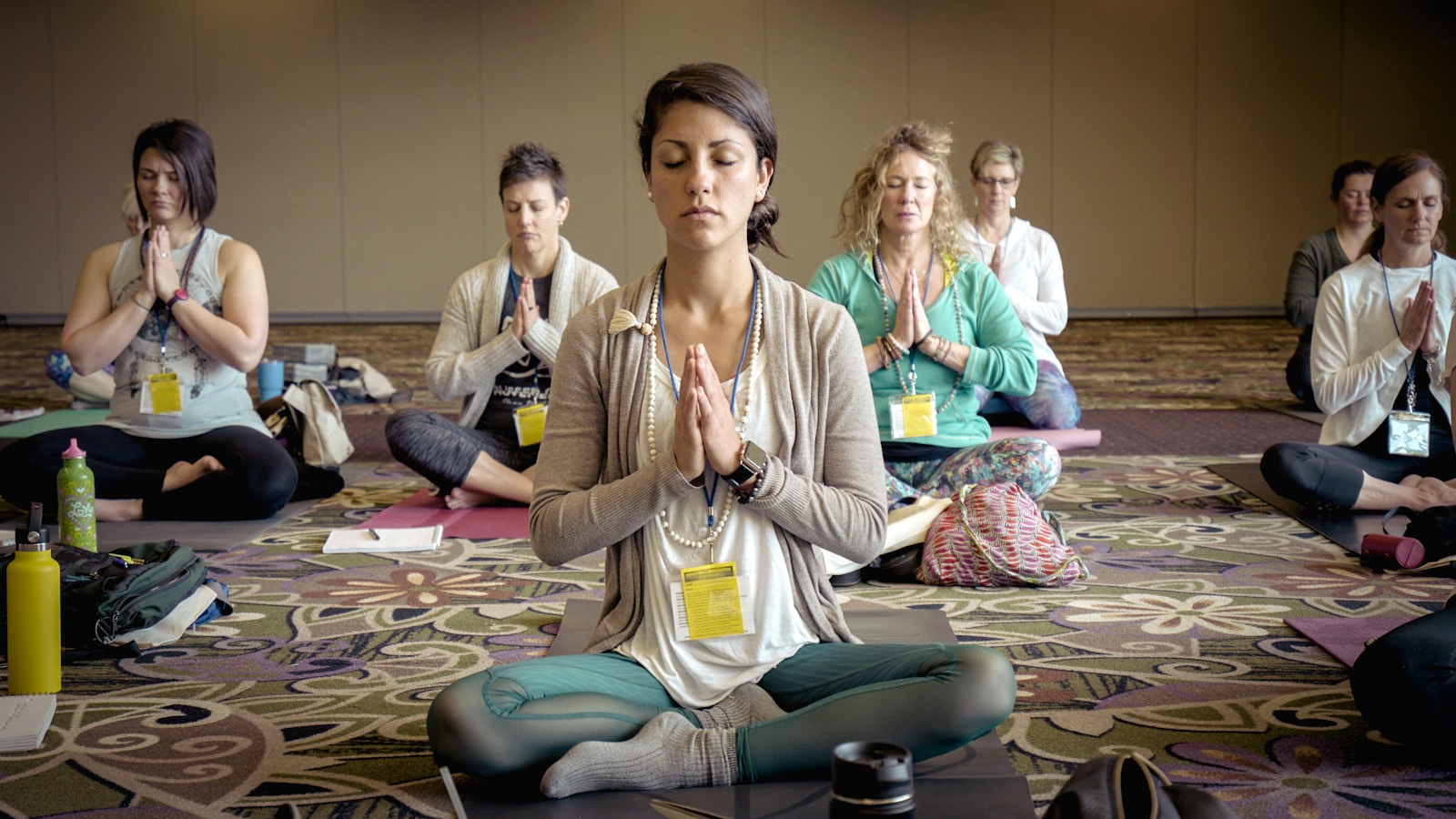The mind-body connection is a profound and intricate relationship that has garnered increasing attention in the field of holistic health and medicine.
This connection highlights the intricate interplay between our thoughts, emotions, beliefs, and physical health. Research has shown that our mental and emotional states can greatly influence our physical well-being, impacting everything from our immune system function to our susceptibility to chronic diseases.
By understanding the mind-body connection, individuals can empower themselves to take a more integrated approach to their health and well-being. Practices such as mindfulness, meditation, and cognitive behavioral therapy can help individuals cultivate greater awareness of their thoughts and emotions, allowing them to make conscious choices that support not only their mental health but also their physical vitality. Embracing this holistic perspective can lead to a more balanced and harmonious life, promoting overall wellness and resilience in the face of life’s challenges.
Exploring Alternative Healing Modalities
Alternative healing modalities encompass a vast array of practices that aim to promote wellness and balance in the body and mind. These modalities often draw upon traditional and holistic approaches, such as acupuncture, aromatherapy, herbal medicine, and energy healing. Many individuals seek out alternative healing modalities as a complement or alternative to conventional medical treatments, viewing them as a way to address the root causes of health issues and promote overall well-being.
One of the key principles of alternative healing modalities is the belief in the interconnectedness of the body, mind, and spirit. Practitioners of these modalities often emphasize the importance of treating the whole person rather than just the symptoms of a particular ailment. By taking a holistic approach to healing, individuals may experience not only physical benefits but also emotional and spiritual transformation. Alternative healing modalities can empower individuals to take an active role in their health and well-being, fostering a sense of empowerment and self-awareness in the process.
Embracing a Whole Foods Diet
A whole foods diet focuses on consuming foods that are minimally processed and as close to their natural state as possible. This means incorporating plenty of fruits, vegetables, whole grains, lean proteins, and healthy fats into your daily meals. By choosing whole foods over processed options, you are providing your body with essential nutrients and promoting overall health and well-being.
When following a whole foods diet, it is important to prioritize variety and balance in your food choices. This ensures that you are receiving a wide range of nutrients necessary for optimal functioning of your body. Additionally, cooking and preparing meals using whole ingredients allows you to have more control over what you are putting into your body, promoting a healthier lifestyle in the long run.
Prioritizing Physical Activity and Exercise
Engaging in regular physical activity and exercise is paramount for maintaining overall health and well-being. Physical activity not only plays a crucial role in managing weight and preventing chronic diseases, but it also enhances mood, boosts energy levels, and improves cognitive function. Incorporating a variety of activities, such as cardiovascular exercises, strength training, and flexibility exercises, can effectively target different aspects of physical fitness and promote a balanced approach to exercising.
Setting aside dedicated time for physical activity in your daily routine can greatly impact your quality of life. Whether it’s a brisk morning walk, a heart-pumping workout at the gym, or a relaxing yoga session, finding activities that you enjoy and that align with your fitness goals is key to staying motivated and committed. Remember that physical activity is not solely about achieving a certain aesthetic or performance goal, but rather about nurturing your body and cultivating a sustainable and healthy lifestyle for the long term.
Creating a Mindful Meditation Practice
Meditation is a powerful practice that allows individuals to cultivate a sense of inner peace and clarity in their minds. By engaging in regular meditation sessions, individuals can enhance their ability to focus, reduce stress, and improve overall well-being. Mindful meditation involves bringing awareness to the present moment without judgment, allowing practitioners to develop a deeper understanding of their thoughts and emotions.
To establish a mindful meditation practice, it is essential to find a quiet and comfortable space where you can sit or lie down without distractions. Begin by focusing on your breath, noticing the sensation of each inhale and exhale. As thoughts arise, simply acknowledge them and gently refocus your attention on your breath. Consistency is key in meditation; set aside a specific time each day to dedicate to your practice, even if it is just for a few minutes. Over time, you will notice an increased sense of calmness and presence in your daily life.

Cultivating Emotional Well-being and Stress Management
Emotional well-being plays a crucial role in maintaining overall health and quality of life. Stress, if left unmanaged, can have detrimental effects on both physical and mental health. It is essential to develop effective strategies to cultivate emotional well-being and manage stress effectively.
One way to enhance emotional well-being is through practicing mindfulness and self-awareness. By learning to observe and understand our thoughts and emotions without judgment, we can develop a greater sense of control and resilience in facing life’s challenges. Additionally, prioritizing self-care activities such as regular exercise, adequate sleep, and engaging in hobbies can help reduce stress levels and promote emotional balance.
Connecting with Nature and the Outdoors
Spending time outdoors in nature has been shown to have numerous physical and mental health benefits. Studies have demonstrated that being surrounded by natural landscapes can reduce stress levels, promote mental clarity, and improve overall well-being. Whether you’re taking a leisurely stroll through a forest, sitting by a tranquil lake, or enjoying the sight of a sunset, connecting with nature can help you feel more grounded and at peace.
Engaging with the outdoors also provides an opportunity to disconnect from the constant noise and distractions of everyday life. It allows us to slow down, appreciate the beauty of the natural world, and recharge our batteries. Whether you choose to go for a hike, have a picnic in the park, or simply spend time in your own backyard, immersing yourself in nature can be a powerful way to rejuvenate both your body and mind.
Fostering Healthy Relationships and Social Connections
Building and maintaining healthy relationships is essential for overall well-being and social connections play a crucial role in our lives. Cultivating meaningful relationships with others provides a sense of belonging, support, and companionship that contribute to our emotional and mental health. Engaging in positive interactions with friends, family, colleagues, and community members can foster a sense of connection and promote a more fulfilling life.
Creating time and space for social interactions allows for the opportunity to share experiences, thoughts, and emotions with others. These interactions can lead to a greater understanding of ourselves, as well as provide us with valuable perspectives and insights from those around us. Nurturing relationships with those who uplift and inspire us can have a positive impact on our overall outlook on life and help us navigate challenges with greater resilience and optimism.
Practicing Sustainable Living and Environmental Awareness
Living sustainably and being environmentally aware have become crucial aspects of modern living. Being mindful of our impact on the planet is more important now than ever before. By making conscious choices in our daily lives, such as reducing waste, conserving energy, and supporting eco-friendly products and initiatives, we can contribute to a healthier environment for future generations.
Sustainable living encompasses a wide range of practices, from using alternative transportation methods to reducing water consumption and planting trees. Each small step we take towards sustainability can have a significant impact when multiplied across communities and regions. By adopting eco-friendly habits and promoting environmental awareness, we can work towards a more sustainable future for ourselves and the planet.
Committing to Lifelong Learning and Personal Growth
For many individuals, the journey of committing to lifelong learning and personal growth is a continuous and evolving process that spans throughout their lives. It is a conscious decision to embrace new challenges, expand one’s knowledge, and develop new skills in order to reach one’s full potential. This dedication to self-improvement not only enhances one’s personal and professional life but also fosters a sense of fulfillment and purpose.
Embracing the mindset of lifelong learning involves seeking out opportunities for growth, whether through formal education, online courses, workshops, or self-study. It requires a willingness to step outside of one’s comfort zone, challenge existing beliefs, and remain open to new perspectives. By cultivating a habit of continuous learning, individuals can adapt to an ever-changing world, stay relevant in their fields, and continue to evolve as a well-rounded and informed individual.



